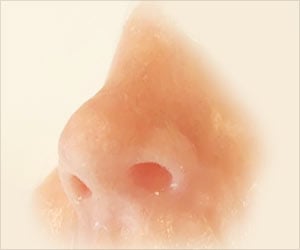The Rice laboratory of bioengineer Antonios Mikos develops materials to help repair severe craniofacial injuries from trauma or pathological defects like tumor removal.

TOP INSIGHT
Rice University researchers develop materials to help repair severe craniofacial injuries from trauma or pathological defects like tumor removal.
The project is the subject of a paper that appeared this week in the Royal Society of Chemistry journal Biomaterials Science.
"Infection is an important problem that needs to be considered with medical devices because bacteria can prevent the body from being able to heal," Mikos said. "If the infection gets too severe, it can even cause tissues that were previously healthy to die."
The researchers led by Rice alumnus Paschalia (Lina) Mountziaris noted that infections from the external environment and from neighboring structures such as the nasal passages, the sinuses and the mouth can attack vulnerable tissue. Several studies have indicated wound infections from gunshot injuries to the face are common, they noted.
Soldiers are at particular risk, said Mikos, as battlefield injuries are often prone to infection from multidrug-resistant species of bacteria that invade between the time of injury and treatment.
The thermogel itself is special. It consists of a block copolymer, a self-assembling combination of two polymers that is also under investigation for the controlled release of chemotherapy drugs.
Porous implants have been tested in humans, but PMMA with thermogel has not, Mikos said. In experiments, the Rice lab infused the gel with colistin, a last-resort antibiotic with strong side effects. He said the PMMA and copolymer combination enabled tight control of its release without disrupting its antibacterial activity. In testing, the implants initially released a burst of the antibiotic through diffusion. Over time, degradation of the copolymer would continue to release lesser amounts of the drug for up to 28 days.
Mikos said the thermogel can be customized at the time of implantation with the appropriate antibiotics, which also affect the rate and duration of release, before infusion into the prefabricated spacer.
Source-Eurekalert
 MEDINDIA
MEDINDIA




 Email
Email





